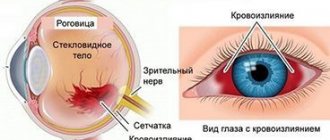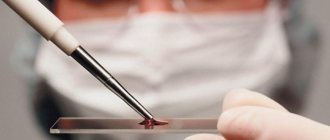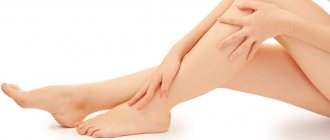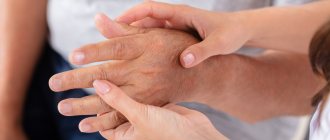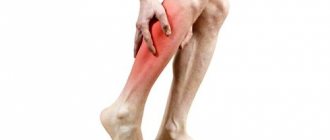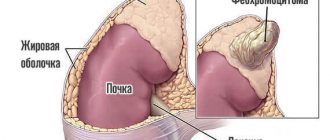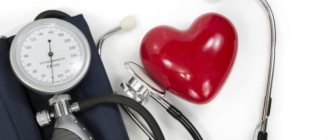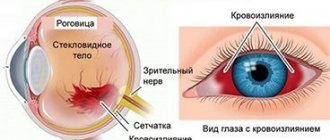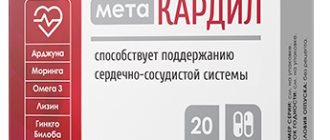A cramp is a sudden, involuntary, often painful contraction of a muscle. This happens to everyone from time to time: at night during sleep, during physical activity, and sometimes at rest. Spasm can occur in any part of the body - in the limbs, in the side, in the buttock, in the abdomen.
Often people have no idea why their muscles cramp. However, it is very important to find out the reasons for this, because a seizure can be both a physiological norm and a symptom of a serious disease. Let's look at this in detail.
Why do muscles cramp?
The reasons can be divided into two groups. The first includes those that do not have any underlying diseases. So, if the calf or gluteal muscles cramp in a dream, there is no physiological pathology in this. The seizure in this case is a parasomnia, that is, a phenomenon associated with sleep. Spasms that occur during increased physical activity also do not indicate an abnormality.
In other cases, such discomfort may be caused by:
- neurological disorders;
- compaction of muscle fibers against the background of physical inactivity;
- metabolic disorders;
- micronutrient deficiency;
- dehydration;
- poisoning (including cramps from a hangover).
There is also a disease called hypoparathyroidism. It is characterized by a convulsive syndrome that immediately affects muscle groups. This condition is caused by hypofunction of the parathyroid glands.
Epileptic seizure
A seizure in epilepsy, or, as it is also called, status epilepticus, is perhaps the most striking example of what the average person imagines when they mention seizures.
The man suddenly pushes, his body contracts chaotically, incoherent wheezing is heard, foam comes out of the mouth. The picture is terrible, and the situation requires quick medical intervention. Surprisingly, just one intravenous injection quickly brings a person back to life.
What to do? The main task of a witness of status epilepticus is to ensure the safety of the unfortunate person so that he does not accidentally injure himself on surrounding objects. If possible, it is recommended to lay him on a soft surface and turn his head to the side so that vomit and foam do not enter the respiratory tract. Call an ambulance as quickly as possible.
If an attack occurs for the first time, it is very important to undergo a full examination as soon as possible. This may be the onset of one of the neurological diseases or a brain tumor.
ONLINE REGISTRATION at the DIANA clinic
You can sign up by calling the toll-free phone number 8-800-707-15-60 or filling out the contact form. In this case, we will contact you ourselves.
If you find an error, please select a piece of text and press Ctrl+Enter
Types of seizures
If involuntary contraction of muscle fibers is caused by overexcitation of the cortical part of the brain, such convulsions are classified as epileptic. Non-epileptic ones are provoked by diseases of the central nervous system, imbalance of nutrients, and unfavorable external conditions.
Also, involuntary muscle contractions can be classified according to their nature:
- tonic – long-term, turning into a state of tension;
- myoclonic – short;
- clonic - jerky, cyclically repeating and alternating with relaxation.
Based on localization, these phenomena are divided into generalized and local. The former cover a significant part of the body (arms, legs, face, neck, side, torso, and sometimes extend to the respiratory tract). The latter occur in separate areas (for example, only in the back or only in the buttock).
Magnesium and potassium
Cramps that periodically appear in the feet, legs, and fingers can occur in people who consider themselves to be completely healthy. Treatment of this unpleasant and painful sensation must begin with a review of the lifestyle and nutritional composition.
It is necessary to understand whether there is enough magnesium and potassium in the diet, the lack of which can not only lead to seizures, but also make them permanent. It is these microelements that regulate the functioning of muscle fibers. Hypomagnesemia causes cramps in the legs, arms, back, neck, and tingling of the fingertips. Treatment with drugs for seizures can relieve pain.
Causes of seizures in different parts of the body
Muscle spasm in a specific area of the body is caused by specific factors. Most often it occurs in the legs. The culprits may be overexertion (including due to intense training), varicose veins and hypothermia.
It can cramp not only the calf muscle, but also the femoral and even gluteal muscles. Sometimes the unpleasant sensation will spread throughout the entire leg.
Abdominal cramps are also common because most abdominal organs are composed of highly contractile smooth muscle cells. Most often, the organs of the digestive system spasm. This is how the well-known abdominal pain occurs. In women, contractions of the uterus (during menstruation, pregnancy or gynecological diseases) cannot be ruled out.
Muscle spasms in the back indicate diseases of the musculoskeletal system. This could be osteochondrosis, intervertebral hernia, degenerative changes in the spine.
Facial nerve neurosis
Neuritis (neurosis N. Facialis) or Bell's palsy occurs due to inflammation of the nerve fiber. Reasons leading to this condition:
- pinched nerve as a result of narrowing of the channel through which it passes. This may be a congenital phenomenon or result from inflammation;
- hypothermia;
- other diseases and infections: herpes, mumps, otitis media, stroke, cancer, central nervous system infections;
- injury N. Facialis.
The onset of the disease is usually gradual. Manifested by pain in the behind-the-ear area. After a couple of days, neurological facial symptoms appear:
- smoothing of the nasolabial fold, drooping of the corner of the mouth;
- the face becomes asymmetrical with a skew towards the healthy side;
- eyelids do not droop. When you try to do this, your eye rolls;
- any attempt to show at least some emotion ends in failure, since the patient cannot move his lips, smile, or manipulate his eyebrows. Such manifestations can worsen to the point of paresis and paralysis of the facial muscles, that is, to partial or complete immobility of the affected part of the face;
- taste sensitivity decreases, salivation appears;
- the eyes are dry, but there is lacrimation when eating;
- hearing on the affected side worsens.
The severity of pathological symptoms depends on the degree and area of damage to the nerve fiber. If the disease is treated inadequately, complications may arise in the form of muscle contractures (immobility).
Since the disease is inflammatory in nature, its treatment is aimed at eliminating it. For this, the patient is prescribed hormonal anti-inflammatory drugs - glucocorticoids, as well as decongestants.
Other methods include:
- prescription of vasodilators and analgesics, B vitamins;
- anticholinesterase agents to increase nerve conduction;
- drugs that improve metabolism in nervous tissue;
- physiotherapy;
- massage, exercise therapy in the recovery stage.
And only in extreme cases, when conservative therapy is ineffective, neurosurgical intervention is resorted to.
Who usually experiences muscle cramps?
This trouble is familiar to everyone: men and women, children and the elderly, athletes and office workers. Only some people get to know her for natural reasons and rarely encounter her, while for others she becomes a frequent companion.
The risk group includes:
- children under 3 years of age who have experienced a rise in temperature above 38 degrees;
- elderly people suffering from vascular diseases and muscle atrophy;
- men engaged in heavy physical labor;
- athletes (football players, swimmers, runners);
- people who abuse alcohol and often experience hangovers;
Predisposes to muscle spasms and pregnancy. In mild cases, they are caused by a lack of vitamins due to changes in the body; in severe cases, they are caused by eclampsia.
Psychogenic causes of facial neurosis
Undoubtedly, disturbances in facial sensations quite often become a consequence of pathology of internal organs and blood vessels.
But often they are caused by psychological disorders and pathological thoughts that arise in our heads.
Facial paresthesias can be situational in nature and develop during episodic nervous excitement: as a result of quarrels, prolonged and intense screams. Such phenomena cause overstrain of the muscles, especially the cheeks and those located around the mouth. As a result, we experience facial numbness and even mild soreness.
The feeling of fear causes us to breathe quickly and shallowly, or to hold our breath. Disturbances in the respiratory rhythm can also provoke impressions that are atypical for us. A feeling arises that is characterized as a “chill running through.” Moreover, it is more concentrated at the roots of the hair. In this case they say: “chills to the marrow of the bones.” The face also becomes cold, a slight tingling appears in its area.
Such phenomena are disturbing when we are overwhelmed by strong emotions. But they accompany people suffering from mental disorders systematically.
A special type of neurotic facial manifestations is a nervous tic. It is characterized as an uncontrolled and systematic contraction of the facial muscles.
The disorder more often accompanies men. And it manifests itself with the following symptoms:
1.Motor:
- frequent blinking, winking;
- setting the lips with a tube;
- nodding head;
- constant spitting or sniffing;
- opening or upturning of the corner of the mouth;
- wrinkling of the nose.
2. Vocal:
- screaming;
- grunt;
- coughing;
- repetition of words.
There are also signs – precursors – that signal the appearance of a tic.
These include itching, facial heat and other paresthesias. Naturally, these signs are considered pathological if they occur in an inappropriate situation. It happens that only the patient himself feels them, but they are not visible to others.
But often twitching and other nervous symptoms become noticeable by other people, and they cause a lot of discomfort to the patient.
Tics can be simple, when there is only one symptom, or complex, which combines several manifestations.
The most common, main cause of tics is mental stress. It can be caused by a strong stress factor of one-stage action. Perhaps you were very scared of something, or broke up with your loved one. That is, the shock was so strong for you that your nervous system lost control.
Or, on the contrary, disorders develop as a result of prolonged monotonous exposure. Symptoms often appear due to lack of sleep and overwork.
Their duration varies. A situational nervous tic disappears a few hours or days after the cause is eliminated. In another case, it persists for years or haunts the patient throughout his life. In such a situation, in addition to eliminating the provoking factor, subsequent psychological work with the patient is required. This type of disorder is called chronic.
A nervous tic can be one of the signs of mental disorders such as neurosis, obsessive thoughts and phobias, depression.
Another group of provoking factors include:
- diseases - stroke, brain injury, infections or poisons;
- neurodegenerative diseases - Huntington's chorea. Characterized by destruction of brain tissue. Accompanied by uncoordinated, sudden movements, as well as neurological disorders of the face. Of these, the first sign is slow eye movements. Then a muscle spasm of the face occurs, which manifests itself in grotesque facial expressions - grimacing. Speech, chewing and swallowing are impaired;
- burdened heredity;
- parasitic infestations;
- eye fatigue due to prolonged eye strain;
- unbalanced diet, when the body receives little magnesium, calcium, glycine. These elements participate in the normal conduction of nerve impulses and are responsible for the coordinated functioning of the nervous system.
Why do muscles cramp in pregnant women?
Carrying a child leads to significant changes in the body. In particular, metabolism is rebuilt. As a result, many expectant mothers are faced with magnesium deficiency, which is why cramps appear.
Pregnant women's legs are subject to greater stress due to weight gain. Hence the involuntary muscle contractions that occur in the evenings and at night. They can also be triggered by varicose veins, which often accompany hormonal changes.
Pregnant women often complain about back pain. The lumbar spine is under constant tension, forced to bend under the pressure of the uterus, so such sensations are normal. Therefore, expectant mothers are recommended to lie on their side to relieve the load on the spine.
Real life examples
Some famous people, whose fame sometimes trumpets all over the world, were also hostage to the pathology of the facial nerve.
Sylvester Stallone, who is known for his enchanting roles, was injured at birth. The actor's mother had a difficult birth and he had to be pulled with forceps. The result is damage to the vocal cords and paresis of the left side of the face. Because of this, Stallone had problems with speech, which became a reason for ridicule from his peers.
The actor grew up as a difficult child. But, in spite of everything, he managed to overcome his defect and achieve considerable success, although partial immobility of his face remained.
Domestic showman Dmitry Nagiyev received facial asymmetry, which was nicknamed “Nagiyev’s squint”, due to paresis of the facial nerve. The illness happened unexpectedly. As a theater student, one day he felt that his face was not moving.
He spent 1.5 months in the hospital to no avail. But one day in his room a window broke due to a draft. Fright provoked a partial return of mobility and sensitivity of the facial part, but the left part retained its immobility.
Diagnostic methods
If the muscles cramp regularly and the person experiences severe pain, it is necessary to consult a doctor. You should also be concerned if this symptom does not have a clear cause (it is not associated with training or staying in an uncomfortable position for a long time).
A common reason why people put off seeing a doctor is not knowing who can help with the problem. It’s better to start with a therapist, and he will give you a referral to a specialist:
- neurologist;
- gastroenterologist;
- phlebologist;
- gynecologist;
- endocrinologist.
After the initial examination, collecting complaints and receiving test results, the doctor will tell you what additional diagnostic methods will be needed. If your stomach cramps, you will be referred for an ultrasound, your back for an X-ray, your neck or calf muscles for a Doppler ultrasound of the blood vessels.
Unusual sensations
It happens that a person can feel phenomena in the face and head that are unusual for the usual state. They are called paresthesias and are manifested by the following symptoms:
- tingling;
- burning;
- "goosebumps"
- numbness;
- itching and rashes.
Often facial paresthesias have an organic basis and become a sign of the disease:
- neuritis, neuralgia of the cranial nerves;
- multiple sclerosis;
- stroke and other circulatory disorders in the brain;
- shingles;
- migraine;
- diabetes;
- epilepsy;
- hypertension.
In certain cases, unusual sensations are observed in certain parts of the face. For example, similar manifestations in the language may appear for the reasons listed above, but often have a different etiology. They are provoked by cancer of the tongue and larynx, as well as trauma by a splintered tooth or denture.
Dental procedures cause numbness and other unusual feelings, especially after tooth extraction. Another reason for their appearance may be an uncomfortable position during sleep or an unsuitable pillow. But the sensations caused by such phenomena usually pass soon.
Another group of provoking factors consists of psychogenic and neurogenic disorders.
What treatment is possible
If diseases of the internal organs are identified that cause muscle cramps, then treatment of the underlying disease will eliminate the accompanying symptoms. Depending on the location, this may include medication, massage, or physical therapy.
Uncontrolled use of anticonvulsants is unacceptable. They are prescribed to patients with epilepsy. If a person sometimes experiences cramps in the gluteal muscle or neck, you should not abuse such medications.
First aid also depends on the location of the spasm. If it occurs in the leg (from the buttock to the foot), you need to rub the muscles, restore blood circulation in them, and warm them up. The back should be kept at rest. But with a belly it’s better not to take risks and call a doctor right away, especially for women who know about their pregnancy.
What to do if a muscle is severely cramped
It is not always possible to easily endure such an attack by limiting yourself to rubbing the affected area. The pain can be unbearable. It can be removed with a sharp impulse.
For cramps due to a hangover, the patient should be placed in a horizontal position and the legs should be raised to reduce blood flow to the extremities. At the same time, it is important to make sure that we are not talking about an epileptic attack (they are not uncommon in alcohol intoxication).
In older people, involuntary muscle contractions are often a warning sign of stroke. Convulsions may give way to paralysis. Timely treatment is important here, so it is better to call an ambulance immediately.
Prevention
The best prevention of involuntary muscle contractions is moderate physical activity. Regular exercise helps keep your muscles under control. The tissues will not suffer from physical inactivity or sudden overload. This is equally beneficial for both men and women at any age.
A set of exercises to prevent cramps always includes stretching. It is useful to do it before bed so that unpleasant symptoms do not occur at rest.
Since muscles often cramp due to hypovitaminosis and lack of microelements, it is important to eat a balanced diet. If you cannot get them in sufficient quantities from food, you should additionally take vitamins B and E, as well as magnesium, calcium and potassium supplements. It is also important to drink enough fluids, because similar discomfort occurs due to dehydration.
Advantages of Minskintercaps drugs
The company has earned well-deserved fame thanks to the production of inexpensive, high-quality medicines. All drugs comply with the requirements of the GMP standard, and their quality and composition are tested in a chemical and biological laboratory accredited in accordance with the requirements of STB ISO/IEC 17025.
The drugs are created from raw materials supplied by the world's leading companies; production is controlled by Pharmacovigilance and meets the requirements set by the European Parliament.
13 Feb 2018
Previous News Feed Next


